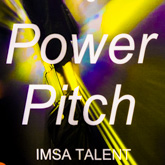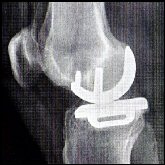 Impact Engine – Part 8
Impact Engine – Part 8
By Jeff Segal – message therapist
Less than a year ago, I asked a prominent figure in Chicago’s startup community about local investors’ interest in the social enterprise model.
She told me flatly, “No one cares.”
Well, they care now. Six months after the first Impact Engine Investor Day, five of the eight members of the initial cohort have closed a round of funding. If you’re keeping score at home, that’s 62.5%, compared to 6% or less for startups in general, according to Forbes. Impact Engine and social enterprise are killing it – killing the competition.
.
Surprise
Portapure, one of the first group of grads, builds individual water treatment devices for developing nations. The company recently closed angel funding worth potentially $300K. I didn’t see that one coming. What did I miss?
“Other filtration technologies aren’t specific to developing countries’ needs and environment,” says founder George Page. “They are high-end products developed for the first world, some with pumps that require electricity or batteries. They’re useless in developing countries. Portapure units work on gravity, with no complex mechanisms. Anyone with a 2nd grade education level can understand how to use them.”
Page explains that Haitians, who on average earn less than $1,000 a year, can spend as much as $3.50 a week on drinking water—but can buy a Portapure unit with a microfinance loan and pay it off in 4-5 months with the savings. With more than 4 million Haitians lacking access to clean water, that’s a promising market.
Before Impact Engine, Page says he was offered $50,000 for half of his company. It’s now valued at $4 million. He thanks Impact Engine “…for access to folks who understand that sustainable social impact is a true value-add, at the forefront of changing how business works.”
Legitimacy for the Whole Social Enterprise Space
Collaborative Group closed on funding of $550K. They connect retail brands with artisans in the developing world—for example, a line of Rachel Roy/FEED handbags is now sourced from India. Founder Kathleen Wright describes the impact such projects create: “We’re employing five artisan groups, and they’re all now sending their kids to school. It really enables them to have different dreams for their kids and themselves.”
But it’s not all social impact—Wright projects that her revenues will double this year.
ThinkCERCA got funded to the tune of $490K and launches its platform this August. They provide curriculum and tools that teach the critical thinking and literacy skills essential to the new Common Core State Standards—standards 49 states already adopted—standards that nobody knows how to implement.
For starters, they’ll reach more than 5,000 students between grades 4 and 12 in both city and suburban school districts. “It helps teachers and kids collaborate and construct new knowledge,” says founder Eileen Murphy, “because you just can’t teach someone to write using multiple choice questions.”
Aside from its feel good vibe, Murphy points out a concrete advantage of the social enterprise model in the tech community: “The social impact focus makes a big difference (for a startup company) competing for engineers.”
Regarding Impact Engine, Wright says, “Chuck Templeton’s guidance—how can you put a price on that? It gives legitimacy to the whole social enterprise space.”
Murphy adds, “Their energy, intelligence, support, and influence can’t be replicated, no matter how brilliant you are or how hard you work.”
.
Two More Funded
Asadi, which markets inexpensive feminine hygiene products in rural India, has since moved back to India to build and train its sales network of 100 female entrepreneurs.
Pangea —which, for reasons unstated, didn’t even pitch on Investor Day—has closed on more than $1 million to finance its multiplatform, worldwide money-transfer solution.
Elizabeth Riley, Impact Engine Program Manager, explains the kind of company that fits the incubator’s profile: “We don’t accept companies with a Buy-One, Give-One business model,” she says, referring to companies that just donate to charity every time someone makes a purchase.
That’s not the social entrepreneurship model. A true social enterprise creates its social benefit from the exact same business activity that generates its sustainable revenue. It’s a model that’s gaining credibility and winning converts, and the eight members of Impact Engine #1 are establishing Chicago as one of the world’s top social enterprise centers.
So—who’s next?
.
About the Author
 Jeff Segal
Jeff Segal  @MsgTherapist, works with entrepreneurs as a Message Therapist, translating great ideas into messages that connect with customers, partners and investors. He also writes at BrokerSavant and We’re Not Expecting Any Surprises. Contact him at mt.jeffsegal@gmail.com
@MsgTherapist, works with entrepreneurs as a Message Therapist, translating great ideas into messages that connect with customers, partners and investors. He also writes at BrokerSavant and We’re Not Expecting Any Surprises. Contact him at mt.jeffsegal@gmail.com
This article can also be seen at Technori
Photo credits – Technori and Jeff Segal
.
Look for Part 9 – Coming Soon
Back to Part 1 – WHAT’S GOOD
.
.
Chicago Venture Magazine is a publication of Nathaniel Press www.ChicagoVentureMagazine.com Comments and re-posts in full or in part are welcomed and encouraged if accompanied by attribution and a web link . This is not investment advice. We do not guarantee accuracy. It’s not our fault if you lose money.
.Copyright © 2013 John Jonelis – All Rights Reserved
.
.








































































































































































時計 レディース